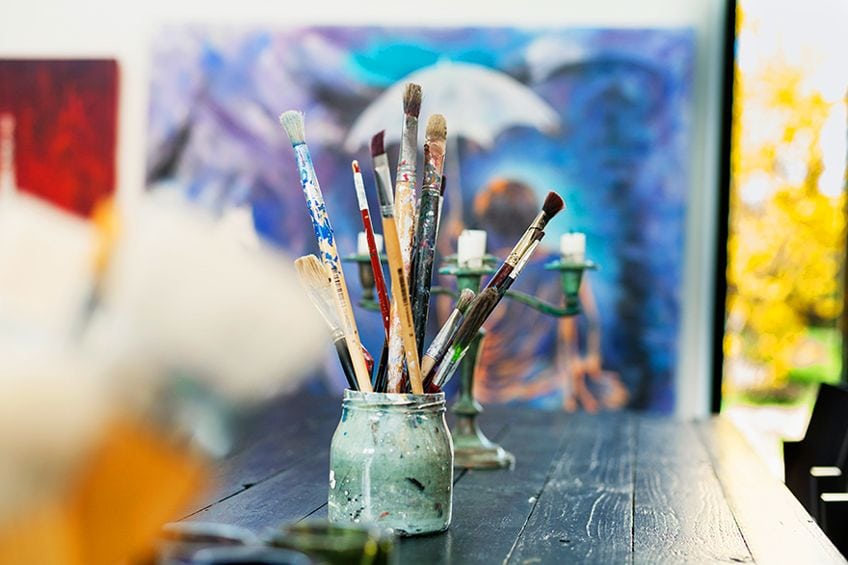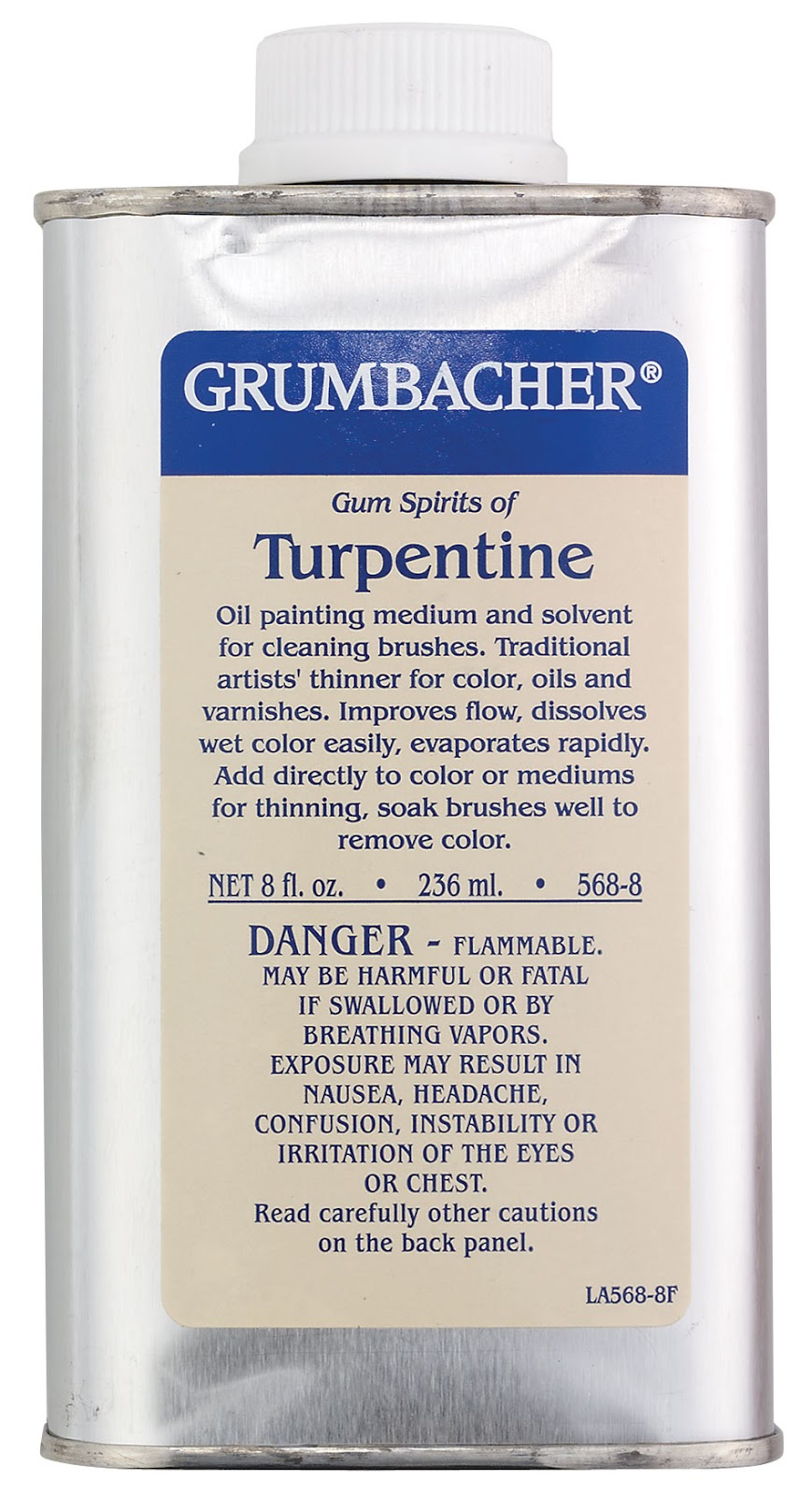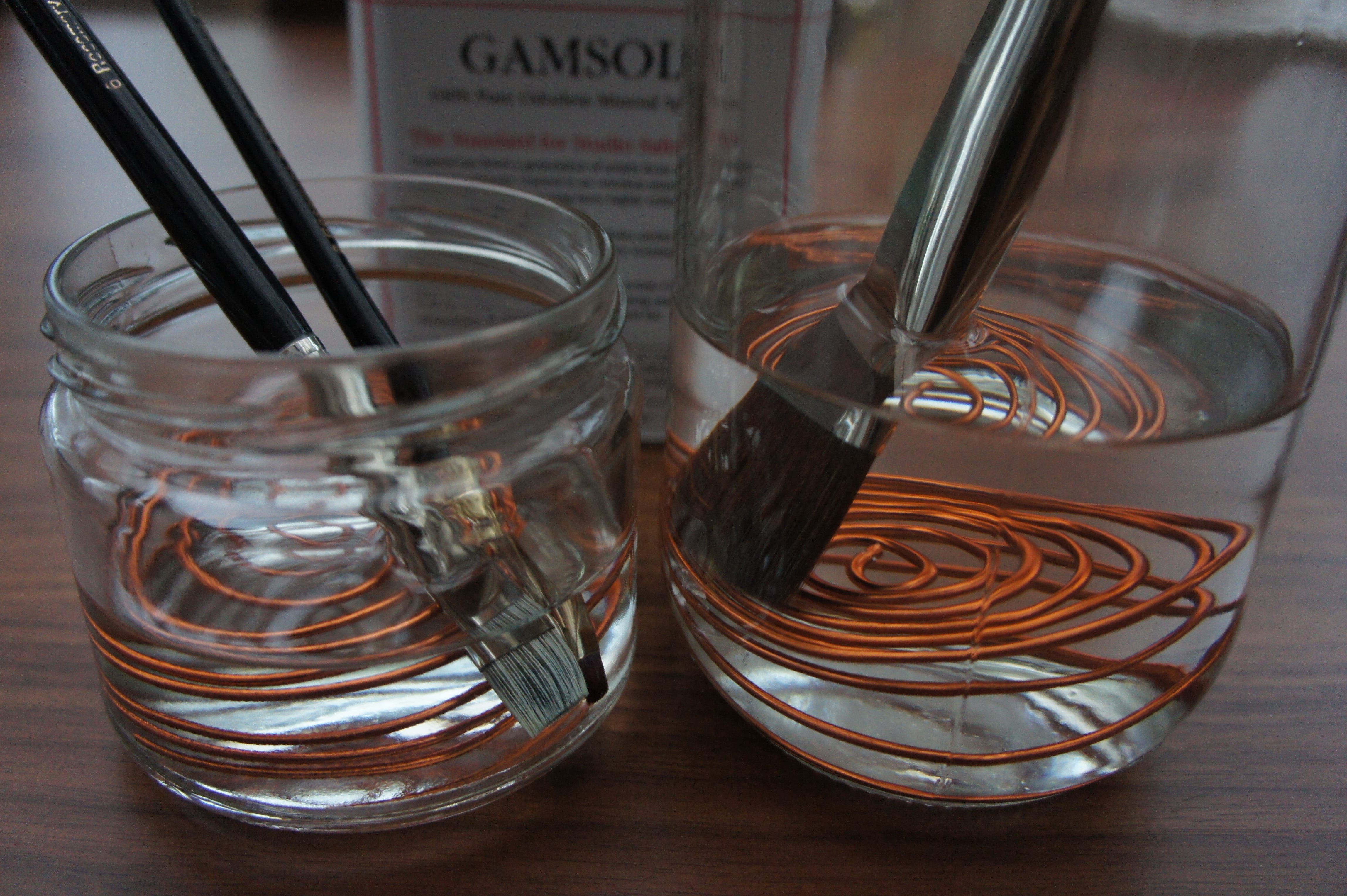- Cleaning Paint Brushes With Vinegar
- Cleaning Oil Painting Brushes
- Cleaning Oil Paint Brushes With Turpentine &
- Cleaning Oil Paint Brushes Without Turpentine
Cleaning your brushes can either be a pretty toxic process (think fumes from turps) or a costly one; environmentally friendly brush cleaners are expensive! It's a necessary evil for artists, however, especially us oil painters. Luckily, there's a cheap (and easy!) process for cleaning your brushes that won't have you in a coughing fit nor break the bank.... let me introduce to you, your new best friend....
Cleaning a Wet Brush Next, fill a container half full of turpentine. Place the brush in the liquid and carefully swish it around. Press the bristles against the side of the container to thoroughly work the turpentine into the brush. The turpentine-cleaning method works best for brushes used with oil-based, acrylic, latex and enamel paints. Most water-based paints clean easily with warm water and soap. For stuck-on paint of all types, a soak in turpentine might just do the trick. Also question is, how do you get oil paint out of brushes? Increases Efficacy of Paints and Varnish. Turps is a useful solvent for oil paints. The paints have a. I call this the 1/8 Inch Method: This technique is simple and easy for cleaning brushes used with oil based paint or oil based finishes, such as Waterlox.
SOAP!
Yes, that's right. Not some secret magical product. Not special soap especially for oil paint. I personally just use Palmolive's bar soap, which I can get 4 bars of at my local shop for €1.50 (about $1.70).
Before cleaning oil-based paint off your brush, put on your dust mask and safety glasses, to protect you from the fumes. Pour some turpentine into a bucket and soak your brush in it for several minutes. Swirl the brush around and wipe it against the side of the bucket until it's clean. Then wipe it dry on a rag.
BEST METHOD
Before cleaning, I'll generally wipe the brush on a rag or paper towel to get as much paint as I can off the brush before I start. I swirl the brush around the bar under warm water to get the paint out, rinsing the brush after a few swirls once it's full of soap. I repeat this a few times until no colour comes out on the soap when I'm swirling it. Then, on the bar of soap I gently brush the bristles back into place so that the brush is in perfect shape again, rinse off and leave to dry; I use an instant coffee jar to keep them upright, bristles facing up. I find this method not only leaves my brushes perfectly clean, but also helps the brushes keep their shape (ever had a brush go a bit wonky after leaving it bristles-down in turpentine?) because the soap is great for reshaping the brush after cleaning. It's also handy and takes less than a minute per brush, depending on how much paint is on them. Check out the quality of my two favourite brushes after about half a year of painting (plus a few times of forgetting to clean them for a day or two after painting- nobody's perfect!):
Notably, other bars of soap will do the trick, I just generally go for the cheaper option that's readily available to me, and I encourage you to do the same. It's also worth noting that I use golden synthetic brushes, but if you use expensive brushes with delicate bristles (such as sable hair) and you're concerned about harsher soaps affecting the bristle quality, you can use a soap that's designed to be more mild on the skin and unscented, or a gentle shampoo (such as baby shampoo) and swirl it on your hand.

Keeping your brushes clean can be an annoyance, but this method saves it from being an annoyance to your wallet and health at least! Happy painting!

Cleaning Brushes
Clean Brushes Naturally


You put your best into your work, so treat yourself and your supplies in the best manner, too.
Cleaning Paint Brushes With Vinegar

Protect your brushes – and your health – by choosing a safer, natural cleaner. Unlike mineral turpentine and mineral spirits, Citra Solv natural solvent does not contain petroleum distillates, which are highly toxic substances. And exposure to “regular” turpentine can be extremely dangerous, even in small amounts.
Plus: cleaning brushes with Citra Solv is easy, efficient, and completely water rinse able. Most other removers require at least an extra step with soap and water. We suggest you simply put some Citra Solv in a glass jar with a lid -- and then keep reusing it.
Cleaning your brushes with Citra Solv is better for your brushes, the environment -- and you.
2. Clean the brush with a little soap and water in the palm of the hand.
3. Let the paint solids settle for a day to so. Pour out the clear citrasolv into another jar and re use.
Thanks to Lucy Reitzfeld for the images and process.
Cleaning Oil Painting Brushes
'I highly recommend Citra Solv as a final brush cleaner for oil painting. It's just a wonderful product! For years I've been concerned about the toxic nature of paint solvents. Some years ago I became highly allergic to them and simply couldn't be around any of them. I used linseed oil or walnut alkyd resin for painting, but I couldn't seem to find a final brush cleaner that wasn't sticky or syrupy. Everything on the market was just too gooey. I had Citra Solv in my kitchen and loved it there and tried it as a brush cleaner in my studio. Wow! It behaves very much like turpentine or turpentine substitute but without any toxic fumes.
Just keep it in a glass jar with a top, swirl the brush around, and then clean the brush with a little plain soap and water to remove all traces of paint and oil. Let the dirty paint settle in the jar, pour off the top into another jar and re use. Voila!'
Cleaning Oil Paint Brushes With Turpentine &
-Lucy Reitzfeld
Lucy Reitzfeld is a professional painter whose works are exhibited and collected widely throughout the United States. She teaches painting at the School of visual Arts in New York.
Cleaning Oil Paint Brushes Without Turpentine
Learn how Robert Burridge gets his tools clean with Citra Solv
